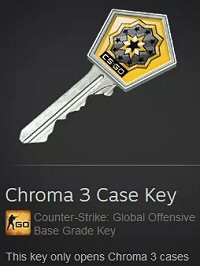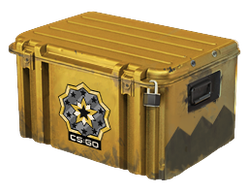Critics are questioning whether micro-cost loot boxes and other pay-to-open mystery rewards are catering to curiosity or promoting video game gambling.
The gaming revolution of recent years brought about an interesting concept in profiteering. In mobile social gaming apps, we call them in-app purchases, or IAPs. In PC and video console games, they are known as micro-transactions. Whatever you want to call them, they are generating billions of dollars for the companies who make these game.
Micro-transactions are aptly titled, for they cost very little to purchase. For years now, players have been able to spend $1 or $2 to purchase things like a new skin pack for their armor and weapons in games like Call of Duty or Counter Strike: Global Offensive. But have software developers taken it too far?
Mystery Loot Boxes For Sale
Cheap Fun or Video Game Gambling?The big problem here, as Geek journalist Will Greenwald pointed out in a scathing piece about loot boxes in Overwatch, is that its creator, Blizzard (and companies like it), are turning mass multi-player online (MMO) games into “gambling simulators”. He argues that micro-transactions and loot boxes are “dangerous and greedy tools designed to wring money out of gamers already magnanimously willing to pay over the game’s $40 entry fee.” Essentially, a person who’s already paid the base price to purchase the game, is then encouraged to spend a little more, little more, little more, on mystery items. And since the player is throwing money at a chance to win an unknown prize, it’s nothing short of gambling. Isn’t this exactly how the lottery system works? |  |
They’re throwing small amounts of cash at a loot box in hopes that it returns the reward they want. Unlike scratch off tickets, there is always something in the box. But that something could be utterly worthless.
Still think it’s good, clean (cheap) fun? Let’s not forget that these in-game items can actually be sold for real money on the Valve marketplace. Is it really just curiosity that’s being piqued when players throw dollar after dollar at keys to open random loot boxes in hopes that it will be worth a higher cash value on the market?
Teaching Minors The Basics of Gambling
The scariest part of all is that there’s a mass of younger audience members playing these titles. Video games developers that use micro-transactions to purchase mystery prizes need to take a step back and look at the bigger picture. They’re teaching minors the basics of gambling on video games.
We all know games manufacturers aren’t going to get rid of micro-transactions, and we’re not asking them to. But there is an easy fix to the problem. Remove “legendary” items from the mix. Make them purchasable with real cash only. If loot boxes didn’t have that one-in-a-million chance to award a rare and coveted prize—one that can be sold for real money on the right market—it would n longer be akin to a lottery.






